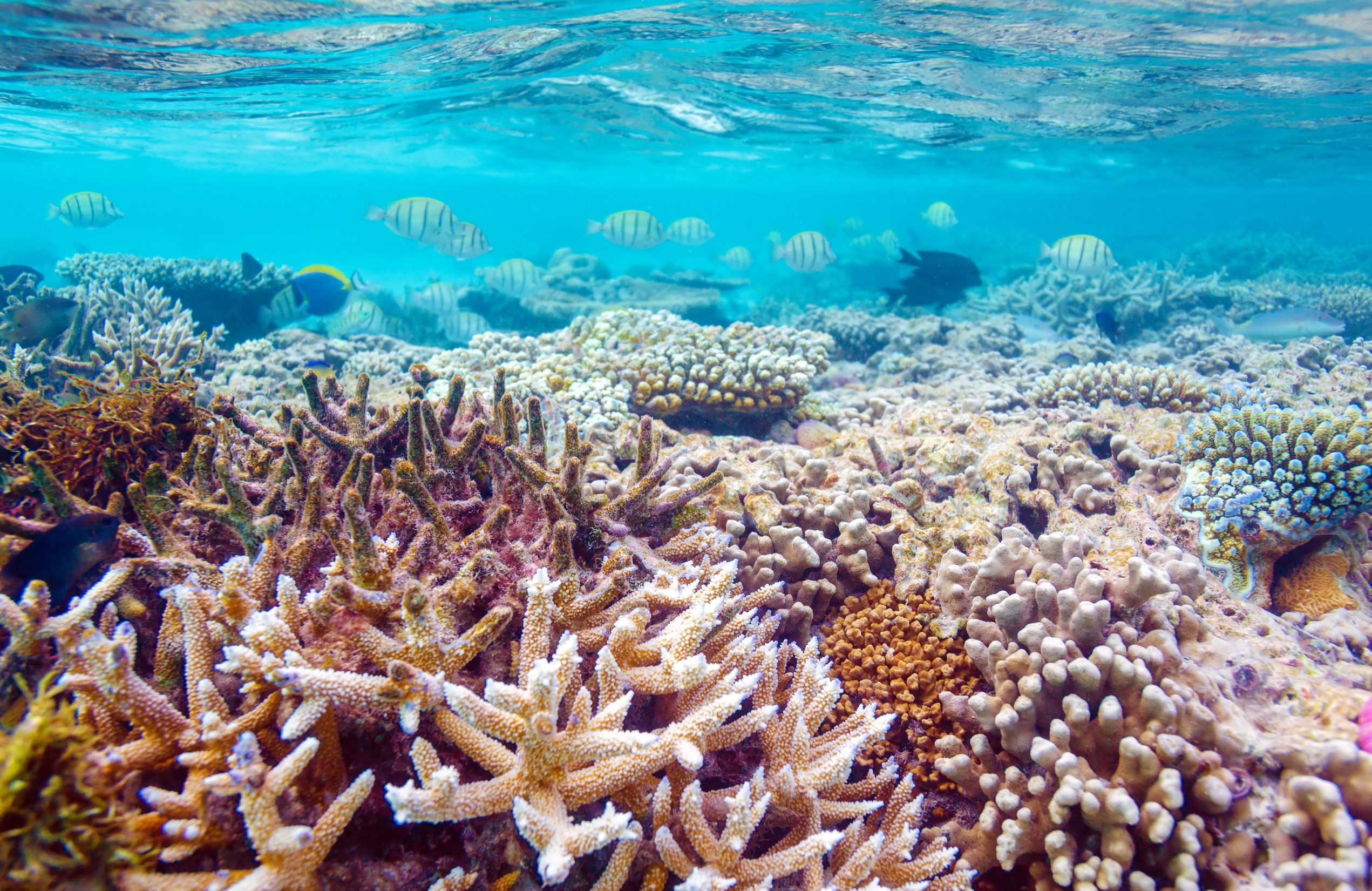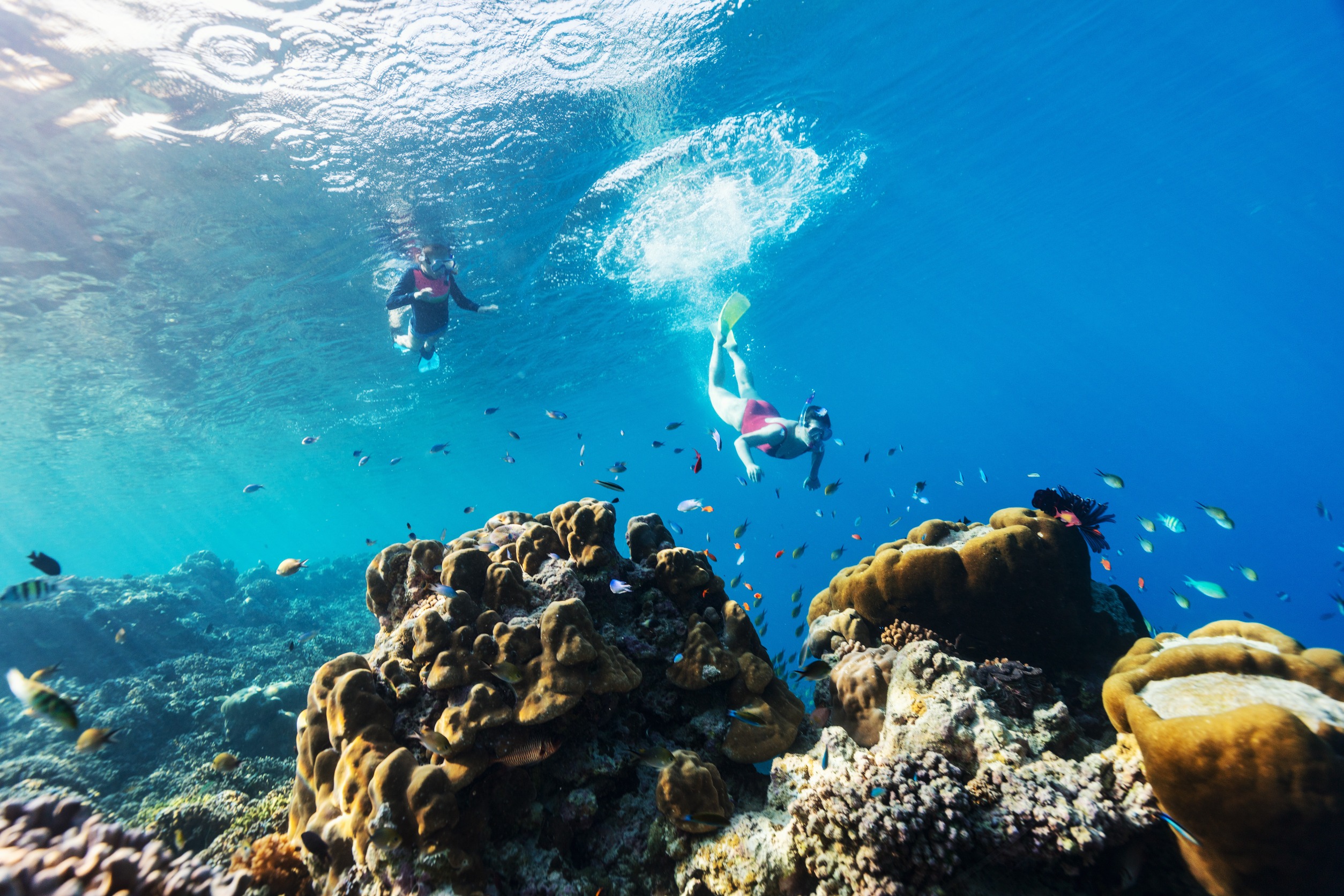The Importance of Coral Reef Ecosystems

A coral reef ecosystem is an intricate collection of species that inhabit the physical space around coral reefs. Each one is a vibrant underwater community that serves as a home to thousands of species of marine organisms. The importance of coral reefs cannot be overstated. More than one-quarter of marine life depend on these delicate systems for survival.
How Is a Coral Reef Formed?
Stony corals make up the basis of the reef. They absorb dissolved calcium from seawater and use it to produce calcium carbonate. This hard mineral becomes the skeleton of a stony coral colony, with the coral polyps living on its surface.
Stony corals in shallow water form a symbiotic relationship with microscopic algae called zooxanthellae. The algae produce food for the coral through photosynthesis in exchange for a home in the reef. This algae gives coral their vibrant colors; without it, they would be transparent.
A coral reef ecosystem may also contain other types of coral, including hydrocorals (fire corals), octocorals (soft corals), and antipatharians (black corals). These do not contribute to the hard skeletal structure.
Where Are Coral Reefs Found?
Coral reef ecosystems are found throughout the world. They exist in both shallow and deep water environments. Coral reefs made of stony corals require clear, shallow water and tropical or subtropical temperatures to survive. Therefore, they are found within a band between 30 degrees north and south latitudes.
There are many reef ecosystems in and around the United States. Florida, Hawaii, Puerto Rico, and the U.S. Virgin Islands have well-documented coral reefs. There are also reefs near American Samoa, Guam, the Commonwealth of the Northern Mariana Islands, and about 100 miles off the shore of Texas and Louisiana.

Other Important Facts About Coral Reefs
Millions of people and marine organisms depend on healthy coral reefs. They drive a massive economic engine that includes fishing, tourism, recreation, and pharmaceutical industries.
Benefits of Coral Reef Ecosystems
Reef ecosystems provide a safe place for over 1 million marine species to live, feed, spawn, and grow. Millions of people worldwide depend on these ecosystems for food, medicine, and economic opportunities. They provide:
- Coastal land protection
- Food for nearby populations
- Recreation opportunities (fishing, scuba diving, snorkeling, etc.)
In addition, many species that inhabit coral reef ecosystems are commercially harvested fish, highlighting their importance to the economy and their use as a source of medicine.
Threats to Coral Reefs
Coral reefs must be healthy to provide the most benefits and the best habitat for other marine life. Sadly, they are among the most threatened ecosystems on Earth. According to the Coral Reef Alliance, 75% of global coral reefs are currently threatened. Without definitive action, that number will reach 100% by 2050.
Coral faces two main categories of threats: global and local. Global threats include increasing ocean water temperatures and changes to ocean chemistry associated with higher levels of dissolved carbon dioxide. These can be directly traced to a warming climate. Global threats require large-scale efforts to slow or reduce them.
Local threats vary depending on the location. They typically include factors such as coral harvesting, overfishing, and physical damage, such as storms or overdevelopment of coastal regions. Pollution is another serious local threat. Common pollutants include:
- Excess nutrients, such as nitrogen and phosphorous
- Microplastics and other trash
- Pathogens
- Sedimentation
- Toxic substances
Another major threat to stony coral reefs is the spread of stony coral tissue loss disease. This was first identified off the Florida coast in 2014 and is now present in at least 25 territories throughout the region.
Viewing a coral reef ecosystem up close is a great way to appreciate their beauty and diversity. Once you see a reef teeming with life, you will undoubtedly be drawn to take action to protect these vital ocean resources.
If you are interested in learning more about coral reefs or interested in learning how to help active restoration efforts including planting coral, visit NOAA Coral Reef Conservation Program website.
